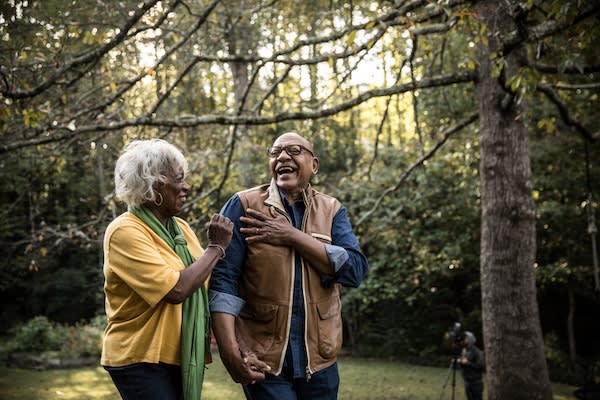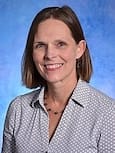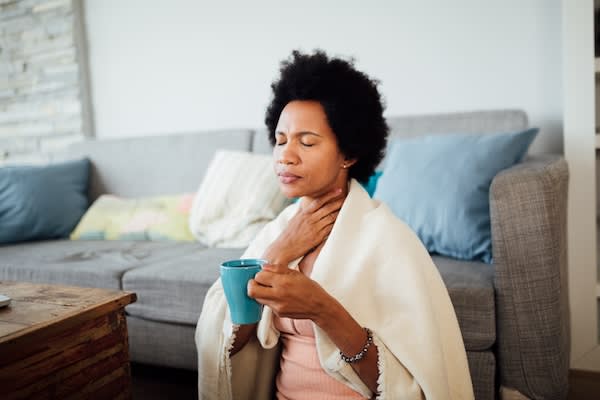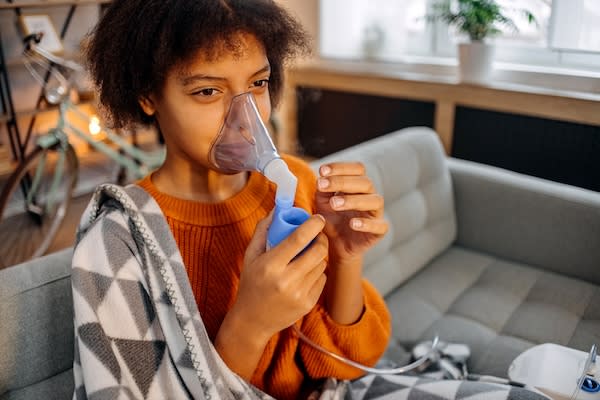Learn the best ways to embrace healthy aging

[5 MIN READ]
In this article:
-
As you get older, it’s just as important to engage in strength-building and balance activities as it is to participate in aerobic activity.
-
Don’t forget to pack in the protein when you’re planning your meals.
-
Some of the most important screenings for older adults include those for fall risk, cognitive decline and depression.
Have you heard that 70 is the new 50? Or that 80 is the new 60? While you may not feel as spry as you did when you were younger, you certainly can take steps to embrace healthy aging.
We spoke with Colleen Casey, Ph.D., ANP-BC, CNS, medical director of the Providence Senior Health program in Oregon, about some of the most important habits you can foster to enjoy life well into your senior years.
Keep moving
The World Health Organization (WHO) recommends that all adults participate in 150-300 minutes of moderate activity per week — defined as movement that gets your heart rate up.
“If you have difficulty moving and have not been involved in regular exercise,” says Dr. Casey, “that could literally mean walking down the street two blocks. I really like to promote the idea of functional activity. It could be just taking an extra set of stairs in your house, gardening or parking your car farther away in the parking lot. Ultimately, the best exercise for you is the one that you will do.”
As you age, your fall risk increases, which is why Dr. Casey says walking isn’t enough. “It’s also important that you participate in strength training and balance exercises two to three times a week,” she says. “So many Medicare Advantage plans promote activity through free gym memberships or online exercise programs. Your local gym can connect you to classes that improve your strength, balance and aerobic activity, such as tai chi.”
Dr. Casey also recommends working with a physical therapist if you’re concerned that physical activity could be difficult for you or you don’t know where to start.
Care for your mental health
Mental fitness is just as important as physical fitness. For many older people, social isolation and loneliness can be devastating for their mental health, leading to depression, anxiety and sometimes even thoughts of suicide. In turn, Dr. Casey says, people who are depressed or anxious are also more at risk for falling, which can cause a domino effect in an older person’s overall health and aging process.
The best solution is often the simplest: Keep your mind active, Dr. Casey says. “‘Keeping your mind active’ can include physical activity,” she says. “But it also includes making social connections, spending time with loved ones, and participating in meaningful activities, such as writing letters to people in need, volunteering at a local non-profit or school, or taking lessons or classes to learn something new.”
You can focus on your brain health by eating well, participating in relaxing activities and making a concerted effort to establish social connections.
Watch the foods you eat
You’ve been hearing about the importance of healthy eating all your life, and that doesn’t change in your later years. “Older adults should be making sure that the foods they choose are tasty, easy to prepare and sufficient in calories and protein,” says Dr. Casey.
In particular, she says, many older adults do not get all the protein they need because their body mass is changing. “It’s often beneficial to have a little extra BMI (body mass index) as you age, so you have a little more protection,” she says. “You might have a little more meat on your bones, but that’s perfectly healthy for older adults.”
Even if you don’t feel like eating or drinking as much as you did when you were younger, try to consume at least four or five small meals a day.
Stay up to date on health screenings
While cancer and heart disease screenings are always important, some screenings are especially relevant to older adults. They include:
- Cognitive screening: Your health care provider can assess your cognitive health and wellness through a screening. Typically, testing cognitive function involves answering a few key questions.
- Depression: Older adults are especially at risk for depression and should talk to their health care provider if they have been experiencing symptoms.
- Fall risk: The National Council on Aging provides a free online tool that can help you determine your risk for experiencing a fall. This screening is especially important for anyone 65 and older. Even if you have not fallen, it’s a good idea to use a home safety checklist to make sure your home is as safe as possible.
- Osteoporosis: Osteoporosis can be a major problem for older adults. Talk to your provider about undergoing a bone density test.
All adults 65 and older should also make sure they’re up to date on the following vaccinations:
- COVID-19
- Flu
- Pneumococcal
- Shingles
- Tdap (tetanus, diphtheria and pertussis) or Td (tetanus and diphtheria)
- RSV (respiratory syncytial virus), if your doctor recommends it
If you’re looking at the above habits and feeling overwhelmed, don’t worry — all it takes is one step. Choose one of these healthy habits to start, and once you feel ready, tackle another one. People are living longer now than they were decades ago. Why not live better, too?
Contributing caregiver

Colleen Casey, Ph.D., ANP-BC, CNS, is the medical director of the Providence Senior Health program in Oregon.
Find a doctor
If you are looking for a primary care provider or health care provider at Providence, you can search for one in our provider directory.
Download the Providence app
It’s all in the app: easily stay connected with Providence and your health. With the Providence app, you can schedule appointments, have virtual visits from the comfort of your own home, get health recommendations personalized for you, access your health records and so much more. Learn more and download the app.
Related resources
5 tips to manage medications and prevent falls
How you can stay at home as you age
Common myths about alcohol and aging
This information is not intended as a substitute for professional medical care. Always follow your health care professional’s instructions.



